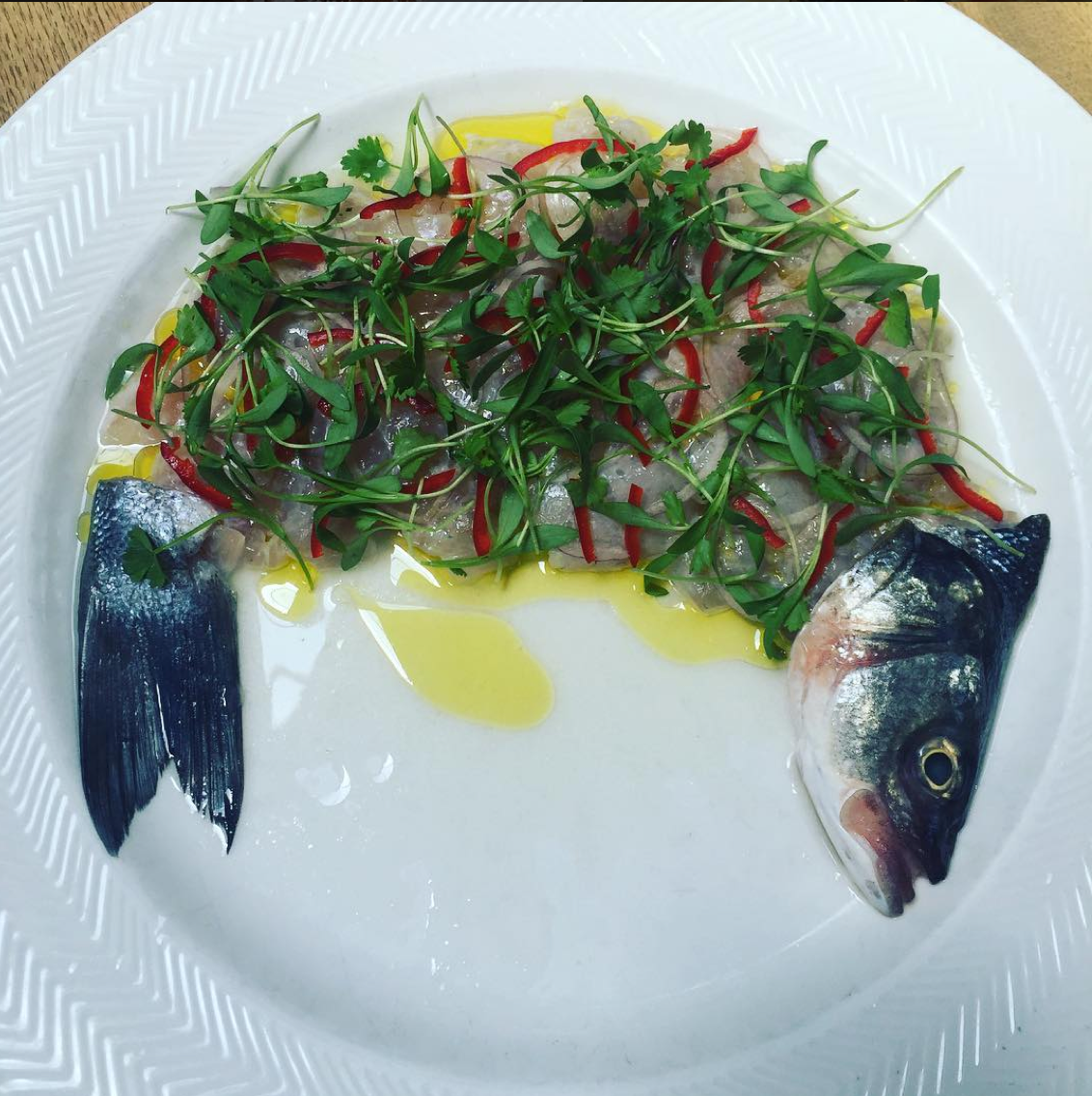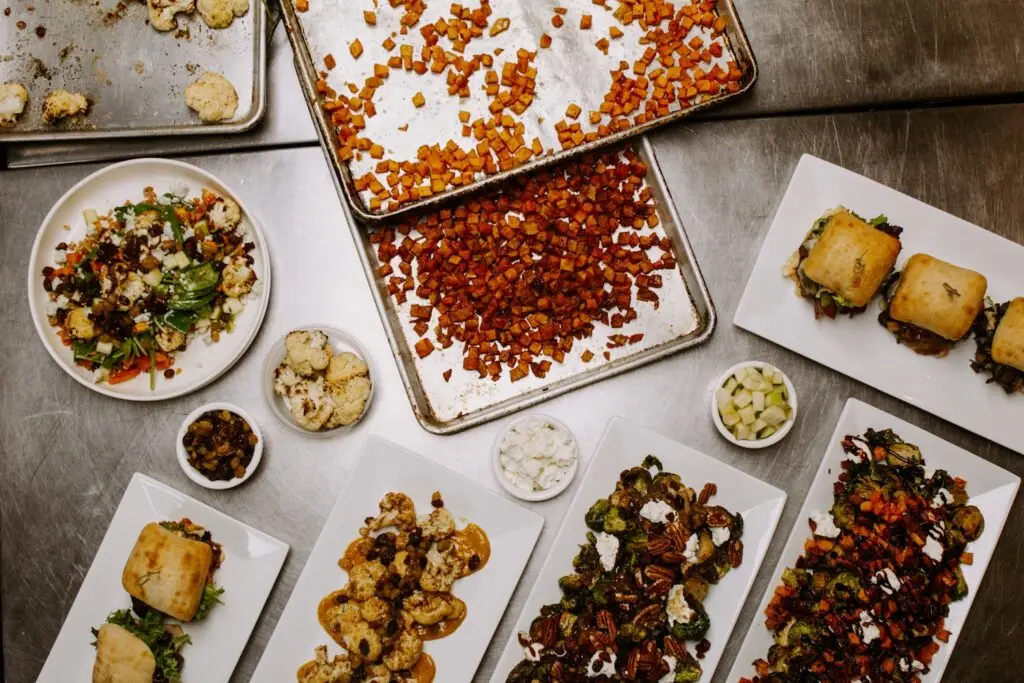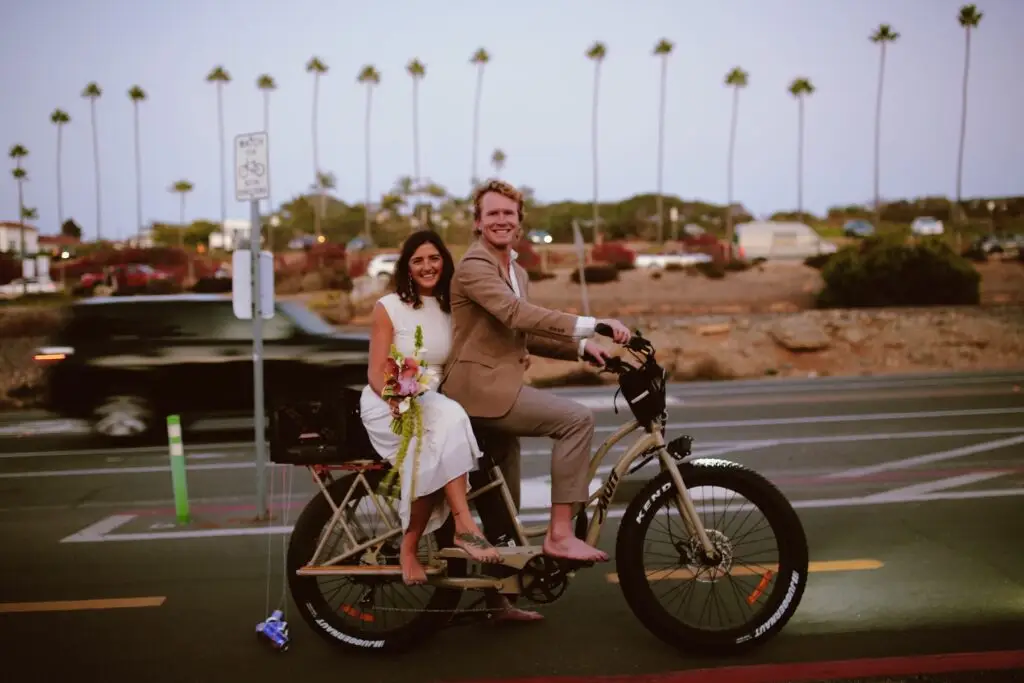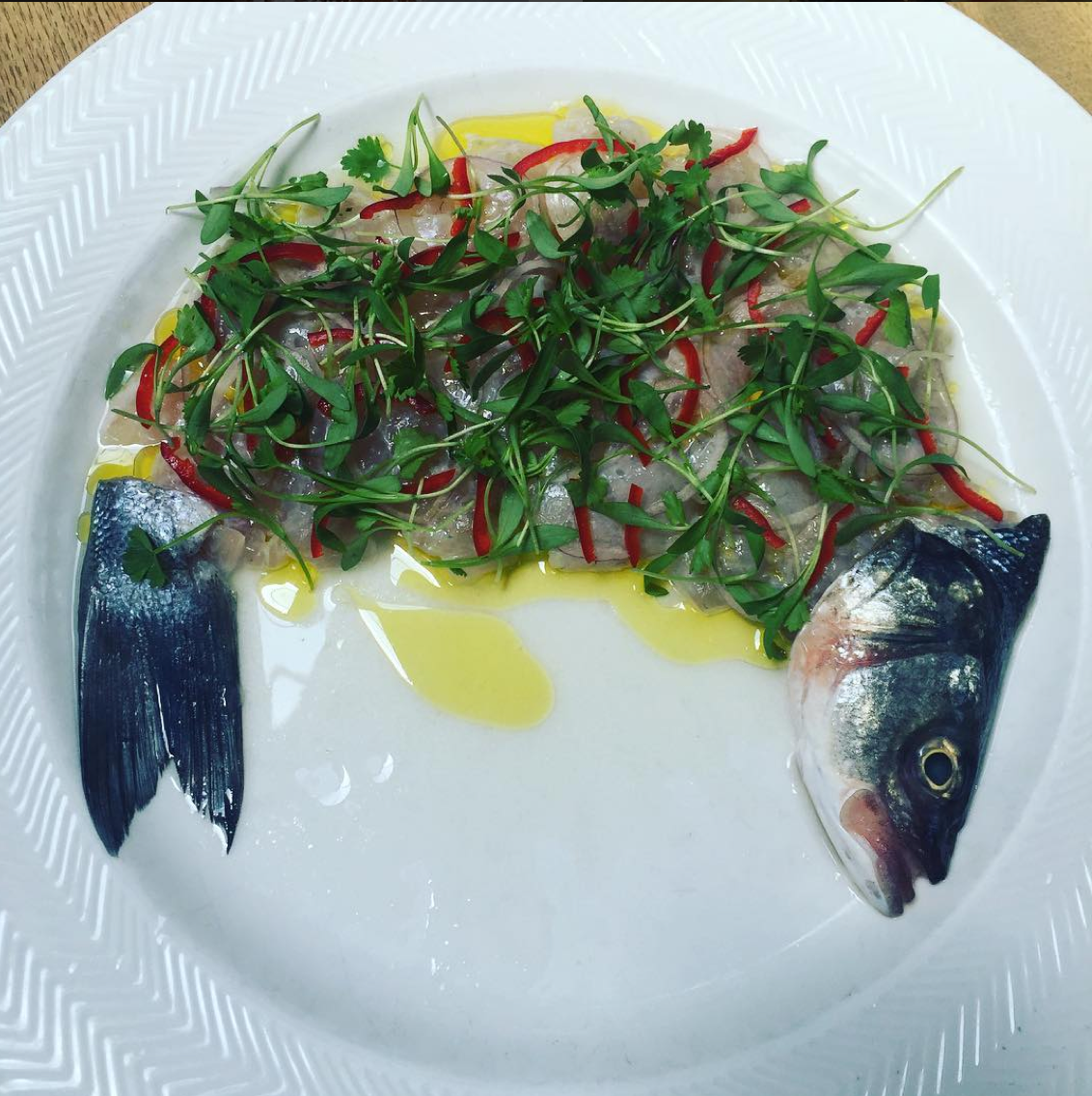I recently posted a photo of a great dish I had at Herringbone in La Jolla. A fresh ceviche, served Peruvian style, with the head and tail of the fish on the plate. And an alarming amount of my social media friends responded with this:
“Oh no! Food with eyes!”
“I can’t eat dinner that’s looking at me!”
“Gross!”
I get it. I empathized. Years ago, I had the same damn reaction. But as someone whose job it is to take a deep look at how, what and why we eat what we do, this response also disturbed me.
In college, I met my first hunter. I was a suburban kid, a lover of animals, the kind of tender ronie who stopped strangers to pet their dogs. I thought my hunter friend was a monster. My logic was comically flawed: Why would a human choose to kill an animal? Had he never seen a Disney movie or cuddled with a Labrador? And yet, I’d grown up enjoying bacon, burgers, steak, chicken. I’d eaten the passenger load of Noah’s ark a few times over. But here’s the thing: Having never even set foot on a farm, I thought of those foods as products at the grocery store, not animals.
Sure, I knew it came from animals. But never having to see the actual animal, or connect with it, that was just an intellectual fact. Not an emotional one.
The friend in question shot deer, mostly. He explained to me that deer were overpopulated, and hunting is how he had grown up. He and his family didn’t do it for trophy. I’m sure part of them did it for sport. But they ate all of the meat, all the parts. They stewed the bones. Nothing went to waste.
Still. Bambi killer.
And now I realize. He was the most authentic, honest omnivore on the planet. Compared to him, I was the sadly common meat eater who buried his head in the sand.
Hunters should be the most respected people on the planet. Not trophy hunters, obviously. Anyone who hunts animals for the prize or wall display is a gross, gaudy, gold-plated link on the evolutionary chain.
But 90-plus percent of us in America eat meat. Why don’t we want to eat meat with eyes? Why does it shock us, and turn our stomach?
Because we’ve become too detached from the process. Most of us don’t fish, hunt, or ranch anymore. The food industry protects us from emotionally difficult action of killing an animal so that we can eat. We only see it as a glistening, beautiful product under a sheath of cellophane. It’s a product, no different than buying an iPad. There’s no photo of a pig or a steer that says, “And here’s Babe, the animal that died so that you can eat!He liked tummy rubs and mud!”
What’s the big deal about that? Why should we bother to look our dinner in the eye?
Because as omnivores, if we care about ethics, I’d like to think we have a moral responsibility to be attached to the animal. We need to reconnect to the meat-making process. When we’re removed from the process, we don’t have to think of protein as a former living thing. The industry removes the moral, ethical and emotional part of meat eating, and just leaves the pleasurable part (eating).
And that leads to a couple of negative outcomes for us. First, a disinterest, or outright ignorance, of how our food animals are treated and whether or not they had a decent quality of life. Do some light research on CAFOs (Contained Animal Feeding Operations) and you’ll quickly see why that matters.
Second, it leads to over-eating and waste; to ordering a triple cheeseburger and only eating half because we have no respect for or tangible knowledge of the animal that gave its life. In 2014, America wasted enough food to fill the Empire State Building 91 times. Ninety-one.
And, finally, to get a little mystical—it takes out the spiritual side of eating. For millions of years, we had to hunt our food and connect with it—see its alive eyes, its animated spirit—before bringing that to an end. That imbued our mealtime with a connectivity to life, death and our natural environment.
Without that connection to our food animals, meals are just pleasure and sustenance. I’d argue that without the toil, the hunt or the gather, eating is only a fraction as meaningful and fulfilling as it could be.
This is a theme I’ve hit on in these pages before. But it’s one that “ceviche with eyes” reminded me of. And it’s worth repeating. As eaters, we should want to connect to our food. Even if it’s just eating food with the eyes still on the plate.
Eat food with eyes. It’s not gross. It’s real.

PARTNER CONTENT
Eat Food With Eyes

















